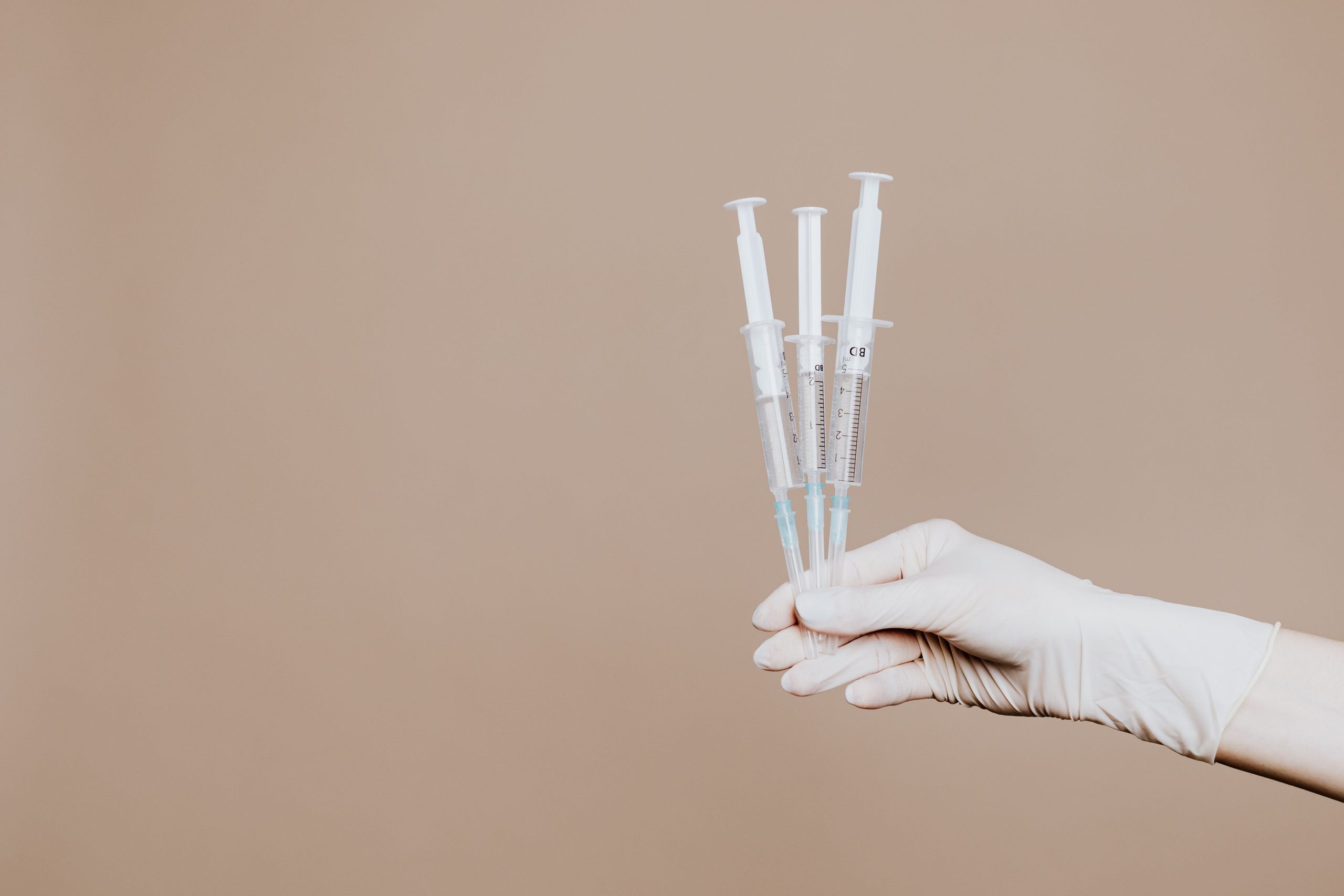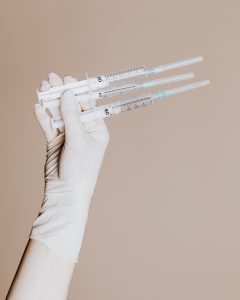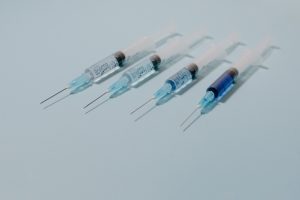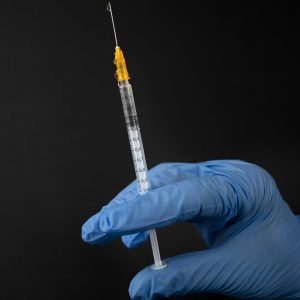
- What is Trenbolone Acetate?
- Brief History of Trenbolone Acetate
- How Does Trenbolone Acetate Work?
- What Are the Potential Benefits for Athletes?
- Are There Legal Implications for Athletes Using Trenbolone Acetate?
- What Are the Potential Side Effects of Trenbolone Acetate?
- Is Trenbolone Acetate Detectable in Drug Tests?
- Can Athletes Legally Use Trenbolone Acetate for Medical Reasons?
- How Is Trenbolone Acetate Administered?
- Is Trenbolone Acetate Addictive?
- Are There Alternatives to Trenbolone Acetate for Athletes?
What is Trenbolone Acetate?
Trenbolone Acetate is a potent anabolic steroid used primarily in veterinary medicine to promote muscle growth and appetite in livestock. In bodybuilding and athletic circles, it is also employed to enhance muscle mass and performance. Chemically, it is a modified form of nandrolone, a naturally occurring hormone in the human body. Trenbolone Acetate acts by increasing protein synthesis and nitrogen retention, leading to accelerated muscle growth and improved recovery.
This steroid is highly valued for its ability to promote lean muscle mass without excessive water retention, making it popular among bodybuilders aiming for a defined and vascular appearance. Additionally, Trenbolone Acetate is known for its strong androgenic effects, contributing to increased strength and stamina.
Despite its effectiveness, Trenbolone Acetate is associated with potential side effects, including cardiovascular issues, androgenic side effects, and suppression of natural testosterone production. Its use is generally not recommended for beginners, and caution is advised due to the potential health risks associated with its misuse. As with any performance-enhancing substance, it should only be used under the supervision of a qualified healthcare professional.
Brief History of Trenbolone Acetate
Trenbolone Acetate, a synthetic anabolic steroid, was first developed in the 1960s by the pharmaceutical company Hoechst-Roussel. Initially intended for veterinary use, it was formulated to increase muscle growth and appetite in livestock. The compound’s potent anabolic properties and ability to promote lean muscle mass quickly gained attention in the bodybuilding and athletic communities.
Trenbolone Acetate was later introduced into the bodybuilding scene as a performance-enhancing drug. Athletes and bodybuilders appreciated its effectiveness in promoting muscle development, enhancing strength, and improving overall physique. Due to its popularity, Trenbolone Acetate became one of the widely used and sought-after steroids in the bodybuilding and fitness industry.
Over time, various pharmaceutical companies have produced Trenbolone Acetate under different brand names, contributing to its availability in the market. However, its use is accompanied by potential health risks and side effects, and regulatory authorities have classified it as a controlled substance in many countries.
Despite its controversial nature, Trenbolone Acetate continues to be utilized by some athletes and bodybuilders, often in controlled and monitored environments, with the aim of maximizing its benefits while minimizing potential adverse effects.
| Attribute | Description |
|---|---|
| Chemical Structure | Trenbolone Acetate is a synthetic anabolic steroid, a modified form of nandrolone, with a molecular formula of C20H24O3. |
| Development Period | Developed in the 1960s by Hoechst-Roussel for veterinary use, primarily to promote muscle growth and appetite in livestock. |
| Intended Use | Originally designed for veterinary purposes, it gained popularity in bodybuilding for its muscle-building and performance-enhancing properties. |
| Anabolic Properties | Known for its potent anabolic effects, promoting rapid muscle growth, increased protein synthesis, and enhanced nitrogen retention. |
| Androgenic Effects | Exhibits strong androgenic properties, contributing to increased strength, stamina, and overall athletic performance. |
| Availability | Produced by various pharmaceutical companies under different brand names. Classified as a controlled substance in many countries. |
| Popularity in Bodybuilding | Widely used in bodybuilding circles for its effectiveness in promoting lean muscle mass and achieving a defined, vascular appearance. |
| Health Risks | Associated with potential side effects, including cardiovascular issues, androgenic side effects, and suppression of natural testosterone production. |
| Caution | Not recommended for beginners. Its use should be supervised by qualified healthcare professionals due to potential health risks and the need for careful monitoring. |
Please note that the information provided here is a concise summary, and it is essential to consult with healthcare professionals for a comprehensive understanding of the substance and its potential implications.
How Does Trenbolone Acetate Work?
Trenbolone Acetate works through multiple mechanisms to promote muscle growth and improve athletic performance. Its primary modes of action include:
- Increased Protein Synthesis:
- Trenbolone Acetate enhances the rate of protein synthesis in muscle tissues. This process is essential for building and repairing muscle fibers, leading to accelerated muscle growth and recovery.
- Nitrogen Retention:
- The steroid improves nitrogen balance by increasing the retention of nitrogen in the muscles. Nitrogen is a crucial component of amino acids, the building blocks of proteins. Positive nitrogen balance is associated with an anabolic state, favoring muscle growth.
- Enhanced Insulin-Like Growth Factor-1 (IGF-1) Production:
- Trenbolone Acetate stimulates the production of IGF-1, a hormone with anabolic effects. IGF-1 plays a vital role in muscle development, as it promotes cell growth and inhibits cell death.
- Increased Red Blood Cell Production:
- Trenbolone can boost red blood cell production, leading to improved oxygen transportation to muscles. This enhanced oxygen supply contributes to increased endurance and stamina during physical activities.
- Binding to Androgen Receptors:
- Trenbolone Acetate binds strongly to androgen receptors, exerting potent androgenic effects. This binding initiates various cellular processes that contribute to muscle growth, strength, and overall performance.
- Inhibition of Glucocorticoid Hormones:
- Trenbolone Acetate may suppress the action of glucocorticoid hormones, such as cortisol. Cortisol is known for its catabolic effects, breaking down muscle tissue. By inhibiting cortisol, Trenbolone helps maintain a more anabolic environment.
While Trenbolone Acetate can offer significant benefits in terms of muscle development and performance, it’s essential to note that its use comes with potential side effects and health risks. Users should exercise caution, and its administration should be supervised by qualified healthcare professionals. Additionally, adherence to recommended dosages and cycle durations is crucial to mitigate adverse effects.
What Are the Potential Benefits for Athletes?
Athletes may seek Trenbolone Acetate for various potential benefits, but it’s important to note that its use is associated with risks and should be approached with caution. Here are some of the potential benefits that athletes may anticipate:
- Muscle Growth:
- Trenbolone Acetate is renowned for its potent anabolic properties, promoting significant muscle growth. Athletes may experience accelerated gains in lean muscle mass, contributing to a more muscular and defined physique.
- Increased Strength:
- The steroid’s androgenic effects can enhance strength and power, allowing athletes to lift heavier weights and perform better in strength-dependent activities.
- Improved Stamina and Endurance:
- Trenbolone Acetate may increase red blood cell production, improving oxygen delivery to muscles. This can lead to enhanced stamina and endurance, allowing athletes to sustain high-intensity efforts for longer durations.
- Fat Loss:
- While primarily known for its muscle-building properties, Trenbolone Acetate may also contribute to fat loss. Its ability to increase metabolic rate and promote a leaner physique can be beneficial for athletes aiming to reduce body fat.
- Enhanced Recovery:
- By accelerating protein synthesis and promoting a positive nitrogen balance, Trenbolone Acetate may facilitate quicker recovery after intense workouts. Reduced muscle soreness and faster recovery times can contribute to more frequent and productive training sessions.
- Improved Athletic Performance:
- The combined effects of increased muscle mass, strength, endurance, and recovery can contribute to overall improvements in athletic performance, making it attractive to some athletes.
It’s crucial to emphasize that the use of Trenbolone Acetate comes with potential health risks and side effects, including cardiovascular issues, androgenic effects, and suppression of natural testosterone production. Additionally, its use is often subject to anti-doping regulations in sports. Athletes considering the use of Trenbolone Acetate should carefully weigh the potential benefits against the risks and adhere to recommended dosages and cycles. Consulting with healthcare professionals and complying with anti-doping policies is essential for responsible and informed use.
Are There Legal Implications for Athletes Using Trenbolone Acetate?
Yes, there are significant legal implications for athletes using Trenbolone Acetate, as it is classified as a controlled substance in many countries. The use of Trenbolone Acetate without a valid prescription is generally considered illegal and can lead to serious consequences for athletes, including:
- Violation of Anti-Doping Regulations:
- Trenbolone Acetate is on the list of prohibited substances by many sports organizations and anti-doping agencies, including the World Anti-Doping Agency (WADA). Athletes who test positive for Trenbolone may face sanctions, including suspension, fines, and disqualification from competitions.
- Legal Consequences:
- Possession, distribution, or use of Trenbolone Acetate without a prescription can result in legal repercussions. This may include criminal charges, fines, and even imprisonment, depending on the laws of the specific jurisdiction.
- Damage to Reputation:
- Athletes found to be using performance-enhancing drugs, including Trenbolone Acetate, may suffer significant damage to their reputation. This can impact endorsement deals, sponsorship opportunities, and overall career prospects.
- Ineligibility for Competitions:
- Athletes testing positive for Trenbolone Acetate may be declared ineligible for competitions, and their results may be nullified. This can have long-term consequences for an athlete’s career and competitive standing.
Athletes are responsible for the substances they ingest, and ignorance of the banned status of a substance is typically not accepted as an excuse. It is crucial for athletes to be aware of and comply with anti-doping regulations, both nationally and internationally, to avoid legal and professional consequences.
Athletes who have legitimate medical reasons for using Trenbolone Acetate should obtain a prescription from a qualified healthcare professional and follow all relevant guidelines to ensure compliance with the law and anti-doping regulations. Seeking advice from sports medicine specialists, team physicians, or anti-doping experts can help athletes make informed decisions regarding the use of any performance-enhancing substances.
What Are the Potential Side Effects of Trenbolone Acetate?
The use of Trenbolone Acetate, like any potent anabolic steroid, is associated with a range of potential side effects. It’s important for individuals considering its use to be aware of these risks. Some of the potential side effects include:
- Cardiovascular Issues:
- Trenbolone can negatively impact cholesterol levels by reducing HDL (good) cholesterol and increasing LDL (bad) cholesterol. This may elevate the risk of cardiovascular problems, including atherosclerosis and heart disease.
- Androgenic Side Effects:
- Trenbolone has strong androgenic effects, which can lead to side effects such as acne, oily skin, increased facial and body hair growth, and male pattern baldness in individuals predisposed to it. Virilization, which involves the development of masculine characteristics in females, can also occur.
- Suppression of Natural Testosterone Production:
- Trenbolone Acetate use can suppress the body’s natural production of testosterone. This can result in hormonal imbalances, testicular atrophy, and a range of associated symptoms, including fatigue, mood changes, and sexual dysfunction.
- Insomnia and Night Sweats:
- Some users report difficulties with sleep, including insomnia, and night sweats. These effects may be related to the stimulatory properties of Trenbolone on the central nervous system.
- Increased Aggression (Roid Rage):
- Trenbolone has been associated with an increase in aggressive behavior in some users. This psychological effect is commonly referred to as “roid rage.”
- Kidney and Liver Strain:
- While not as hepatotoxic as some other oral steroids, Trenbolone can still exert strain on the liver. Additionally, there may be concerns about kidney function with long-term use.
- Prostate Enlargement:
- Trenbolone can contribute to the enlargement of the prostate, which may lead to urinary issues.
- Potential for Gynecomastia:
- While Trenbolone does not aromatize into estrogen, it can still indirectly contribute to gynecomastia (enlargement of male breast tissue) by increasing prolactin levels.
It’s crucial for individuals considering the use of Trenbolone Acetate to understand these potential side effects and weigh the risks against the perceived benefits. Responsible use involves adherence to recommended dosages and cycle durations, regular monitoring of health parameters, and consulting with qualified healthcare professionals to manage any potential adverse effects.
Is Trenbolone Acetate Detectable in Drug Tests?
Yes, Trenbolone Acetate is detectable in drug tests, particularly in the context of anti-doping screening for athletes. The World Anti-Doping Agency (WADA) and other sports organizations include Trenbolone in their list of prohibited substances, classifying it as an anabolic agent.
Testing methods for Trenbolone typically involve analyzing urine or blood samples. The detection window can vary based on factors such as the specific test used, the individual’s metabolism, and the dosage and duration of Trenbolone use. Generally, Trenbolone metabolites can be detected for several weeks to months after the last administration.
Athletes subjected to anti-doping tests are at risk of being sanctioned if Trenbolone or its metabolites are found in their samples. Penalties may include suspension, fines, and disqualification from competitions. It is crucial for athletes to be aware of the banned status of Trenbolone and other prohibited substances, as well as to comply with anti-doping regulations to avoid adverse consequences.
For individuals in other contexts, such as employment-related drug testing or legal situations, the detection of Trenbolone would depend on the specific testing protocols and substances included in the panel. If there are concerns about drug testing, individuals should be cautious about using Trenbolone Acetate, as its presence in the system can have legal and professional implications.
Can Athletes Legally Use Trenbolone Acetate for Medical Reasons?
Athletes can legally use Trenbolone Acetate for medical reasons if they have a legitimate medical prescription from a qualified healthcare professional. Trenbolone is a controlled substance, and its use without a prescription is generally considered illegal and subject to legal consequences, including potential criminal charges.
In a medical context, Trenbolone Acetate might be prescribed to individuals with specific medical conditions that warrant the use of anabolic steroids. This could include conditions such as severe muscle wasting, certain types of anemia, or hormonal deficiencies. The prescribing healthcare professional would carefully assess the individual’s health condition, weigh the potential benefits against the risks, and determine if Trenbolone Acetate is an appropriate treatment option.
Athletes with a legitimate medical need for Trenbolone Acetate should follow the prescribed dosage and administration guidelines provided by their healthcare professional. It’s also essential for athletes to communicate openly with their sports organizations, anti-doping agencies, and relevant authorities to ensure compliance with anti-doping regulations and to prevent any misunderstandings regarding the use of prescription medications.
It’s important to note that the use of Trenbolone Acetate without a valid medical prescription is not only illegal but also violates the anti-doping regulations of sports organizations, potentially leading to serious consequences for athletes, including suspension, fines, and disqualification from competitions.
| Context | Legal Status of Trenbolone Acetate |
|---|---|
| Medical Use with Prescription | Legal, if prescribed by a qualified healthcare professional. |
| Medical Use without Prescription | Illegal; Trenbolone Acetate is a controlled substance. |
| Recreational or Athletic Use | Illegal; athletes must adhere to anti-doping regulations. |
| Employment Drug Testing | Potentially legal, depending on the specific policies and substances included in the testing panel. |
| Legal Consequences | Possession or use without a prescription may lead to legal consequences, including criminal charges and fines. Athletes may face anti-doping sanctions and disqualification. |
How Is Trenbolone Acetate Administered?
Trenbolone Acetate is typically administered through intramuscular injection. This anabolic steroid is formulated as an injectable solution, and users commonly inject it into the muscles. Here are some key points regarding the administration of Trenbolone Acetate:
- Injection Sites:
- The most common injection sites for Trenbolone Acetate are the larger muscles, such as the glutes (buttocks) or the thighs. Intramuscular injections allow for the slow and sustained release of the drug into the bloodstream.
- Frequency of Administration:
- The frequency of Trenbolone Acetate injections can vary depending on the specific cycle and dosage prescribed or chosen by the user. Some users administer it every other day, while others may use it on a daily or weekly basis. The half-life of Trenbolone Acetate is relatively short, so frequent injections are often recommended to maintain stable blood levels.
- Dosage:
- Dosages also vary widely based on factors such as the user’s experience, goals, and tolerance to the compound. It is crucial to start with lower doses to assess individual response and tolerance before considering higher doses.
- Sterile Techniques:
- When administering Trenbolone Acetate or any injectable steroid, it is crucial to follow sterile injection techniques to minimize the risk of infection. This includes using clean needles, rotating injection sites, and properly sterilizing the injection area.
- Cycle Duration:
- Trenbolone Acetate is often used in cycles, typically lasting 6 to 12 weeks. Prolonged use or high dosages can increase the risk of side effects and health complications.
- Post-Cycle Therapy (PCT):
- After completing a Trenbolone Acetate cycle, users often engage in post-cycle therapy to help restore natural testosterone production, which may be suppressed during the cycle. This may involve the use of medications such as selective estrogen receptor modulators (SERMs) or human chorionic gonadotropin (hCG).
It’s important to note that the use of Trenbolone Acetate should be done under the supervision of a qualified healthcare professional. Self-administration without proper knowledge and monitoring can lead to serious health risks and side effects. Additionally, the use of Trenbolone Acetate is subject to legal regulations and may be prohibited in certain sports or competitions.
Is Trenbolone Acetate Addictive?
Trenbolone Acetate, like other anabolic steroids, is not considered addictive in the same way as substances that lead to physical dependence and withdrawal symptoms. However, it’s crucial to understand that individuals can develop psychological dependence or a reliance on the drug for certain effects, such as improved physique, enhanced performance, or a sense of well-being.
The potential for psychological dependence on Trenbolone Acetate arises from factors such as body image concerns, the desire for continued performance improvement, and the psychological effects associated with the use of anabolic steroids. Users may develop a reliance on these substances to maintain or improve their physical appearance and athletic performance.
Moreover, abrupt discontinuation of anabolic steroids like Trenbolone Acetate can result in psychological symptoms, such as mood swings, irritability, and feelings of low energy, which may be mistaken for withdrawal. These effects are not indicative of physical addiction but rather the body’s adjustment to changes in hormone levels.
It’s important to note that the use of Trenbolone Acetate is associated with potential health risks and side effects, and prolonged or excessive use can lead to serious medical complications. The decision to use such substances should be made with careful consideration of the associated risks and under the supervision of qualified healthcare professionals.
If individuals are concerned about their use of Trenbolone Acetate or other anabolic steroids, seeking support from healthcare professionals, counselors, or support groups is recommended. They can provide guidance on safe use, potential risks, and help individuals address any underlying issues related to substance use.
| Aspect | Description |
|---|---|
| Physical Addiction | Trenbolone Acetate is not physically addictive, and it does not lead to dependence or withdrawal symptoms in the same way as substances causing physical addiction. |
| Psychological Dependence | Individuals may develop psychological dependence on Trenbolone Acetate, relying on it for certain effects such as improved physique or enhanced athletic performance. |
| Withdrawal Symptoms | Discontinuation of Trenbolone Acetate may lead to psychological symptoms, but these are not indicative of physical withdrawal. Symptoms may include mood swings and irritability. |
| Potential for Abuse | Some individuals may misuse Trenbolone Acetate, exceeding recommended doses or cycle durations, increasing the risk of side effects and health complications. |
| Professional and Legal Implications | Inappropriate use of Trenbolone Acetate, especially in sports, can lead to anti-doping sanctions, legal consequences, and damage to an individual’s professional standing. |
| Importance of Professional Guidance | Use of Trenbolone Acetate should be supervised by qualified healthcare professionals to minimize risks, ensure safe administration, and address any potential health concerns. |
Are There Alternatives to Trenbolone Acetate for Athletes?
Yes, there are alternative approaches for athletes seeking performance enhancement or muscle development without resorting to Trenbolone Acetate or other anabolic steroids. It’s important to note that the use of anabolic steroids can have serious health risks and legal implications, so exploring safer alternatives is advisable. Here are some alternatives that athletes may consider:
- Nutrition and Diet:
- Proper nutrition is fundamental for athletic performance and muscle development. Athletes should focus on a well-balanced diet that includes an adequate amount of protein, carbohydrates, healthy fats, vitamins, and minerals. Nutritional supplements, such as protein powders, may be used to support muscle recovery and growth.
- Strength Training:
- Implementing a well-structured strength training program is crucial for building muscle mass and increasing strength. Progressive resistance training, including compound exercises like squats and deadlifts, can be highly effective.
- Endurance Training:
- For athletes focused on improving stamina and endurance, cardiovascular exercises such as running, cycling, and swimming can be valuable. Endurance training contributes to overall fitness and performance.
- Legal and Safe Supplements:
- There are various legal and safe supplements on the market that claim to support muscle growth, recovery, and performance. However, it’s essential to approach these with caution and ensure they comply with anti-doping regulations. Common supplements include creatine, branched-chain amino acids (BCAAs), and beta-alanine.
- Hormone Optimization under Medical Supervision:
- Some athletes explore hormone optimization under the guidance of qualified healthcare professionals. This may involve monitoring hormone levels, addressing any deficiencies, and optimizing natural hormonal balance through legal and ethical means.
- Recovery Strategies:
- Adequate rest, sleep, and recovery strategies play a vital role in athletic performance. Prioritizing recovery can help prevent overtraining, reduce the risk of injuries, and contribute to overall well-being.
It’s crucial for athletes to prioritize their health and well-being while pursuing their performance goals. Before implementing any new training regimen, dietary changes, or supplementation, it is advisable to consult with qualified healthcare professionals, nutritionists, or sports performance experts. These professionals can provide personalized guidance tailored to individual needs and goals while ensuring compliance with legal and ethical standards.






